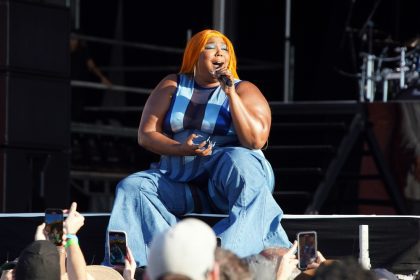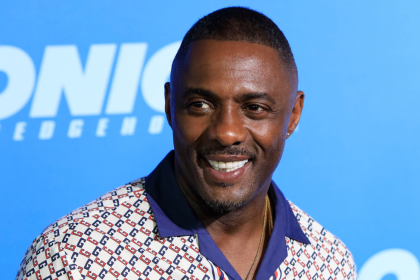Carmen Ejogo found herself in a fairly unique position once she landed the role of Coretta Scott King in the highly anticipated Civil Rights drama Selma. She had to step back into the shoes of one of the most revered women of the movement, a beloved figure who became an icon and the caretaker of Martin Luther King’s legacy. Ejogo first portrayed Coretta Scott King in the acclaimed 2001 movie Boycott, which starred Ejogo’s now-husband, actor Jeffrey Wright. Ejogo explained to rolling out what it was like revisiting the woman at a totally different point in her life.
“I felt good about playing her a second time … because she’s such a different woman by 1966,” Ejogo shares. “I could throw away all of the things I’d learned about her and start afresh. She’s a much wearier woman. She’s really had to make peace with the fact that she doesn’t get to explore a lot of her own personal talents and wants. She was trained to be a singer and an academic and intellectual in her own right and she doesn’t necessarily get to be heard. She’s settled in the role of stay-at-home mom who rarely sees her husband. And is also dealing with the pressure of knowing she might lose him.”
“I feel like they kind of knew [King’s assassination was imminent] at this point,” she adds. “She’s really struggled with all of those things. Compared to the first time when I played her and they’d just been thrust into the spotlight of leadership. There was a naiveté to it [at that point] — a hopefulness. There wasn’t quite the same expectation for her being the perfected ‘first lady of the movement,’ so she wasn’t as beholden to an image yet; that I feel like she really bought into by the time we see her in 1966.”
Ejogo and the rest of the cast of the movie were obviously watching as protests emerged around the U.S. in the wake of a rash of police killings of unarmed black men this summer. In the weeks before Selma‘s release, more protests were taking place after it was announced that officers wouldn’t be indicted in two of the most high-profile cases; the shooting of Mike Brown in Ferguson, Missouri, and the choking death of Eric Garner in New York City. Ejogo says she hopes that Selma inspires and educates.
“If you speak to other members of the cast who are deeply faithful, they would suggest that this is divine intervention on some level,” she says. “That you have life imitating art and art imitating life in this way is very rare phenomenon. I think there’s a relevance to the movie that will be multilayered.”
“What often happens with protests and movements that are televised, you have a skewing of the perspective once the protest hits the media,” Ejogo states. “It’s like the one pocket of violence that gets focused on or it’s the one moment of looting—when you actually had thousands of people lining Fifth Avenue and there was not a problem. But that’s not what gets seen. The idea that this film will sort of end up [educating] middle America who don’t get any example of civil disobedience beyond those moments of bias on the news and through reporting; to see a film that is a parallel to what’s happening, seeing a movement that can work and it doesn’t have to be ugly and it can be successful in changing policy—can be one of the great surprising gifts of this movie. As well as a blueprint as to how to successfully protest peacefully and make something of it, it can be the gift that keeps giving.”















